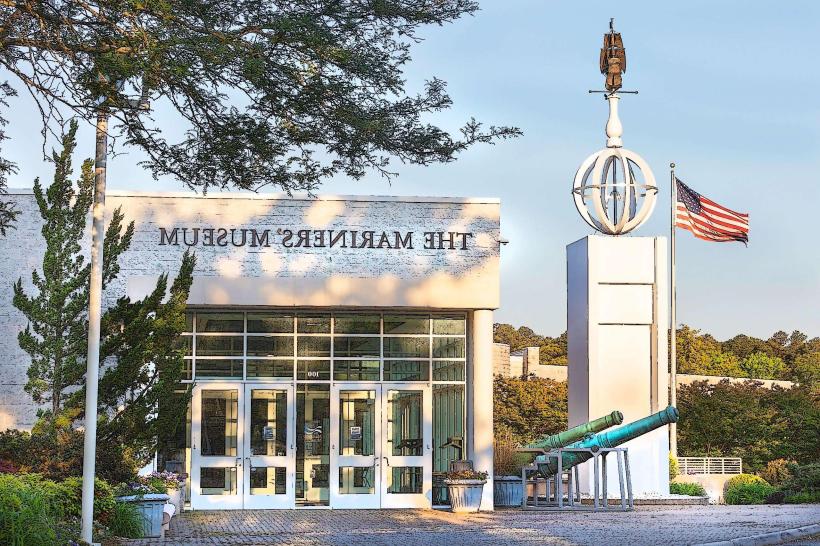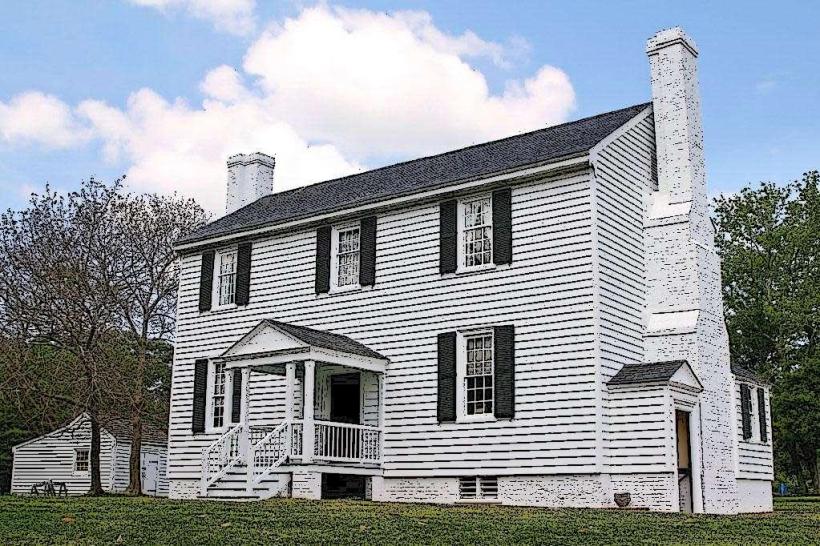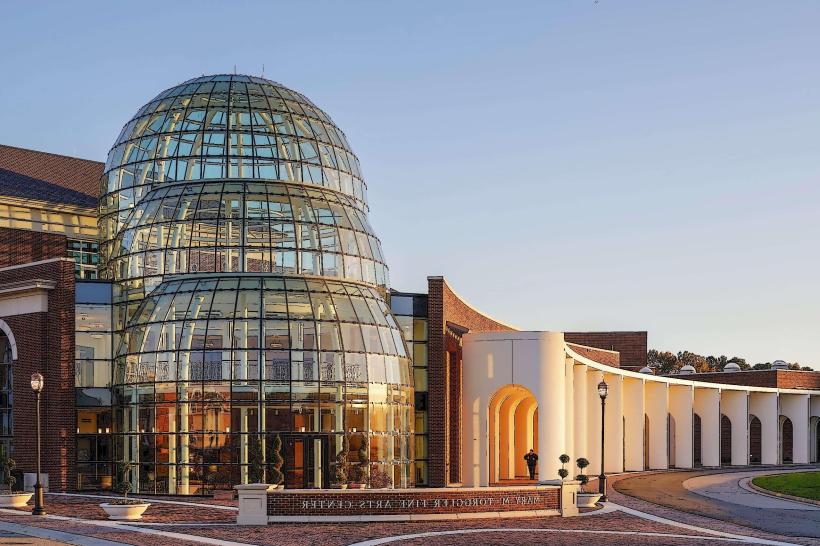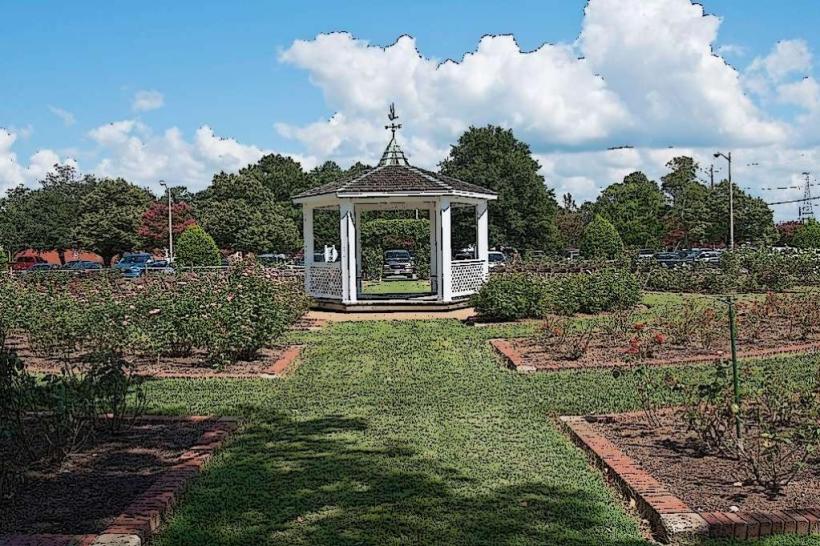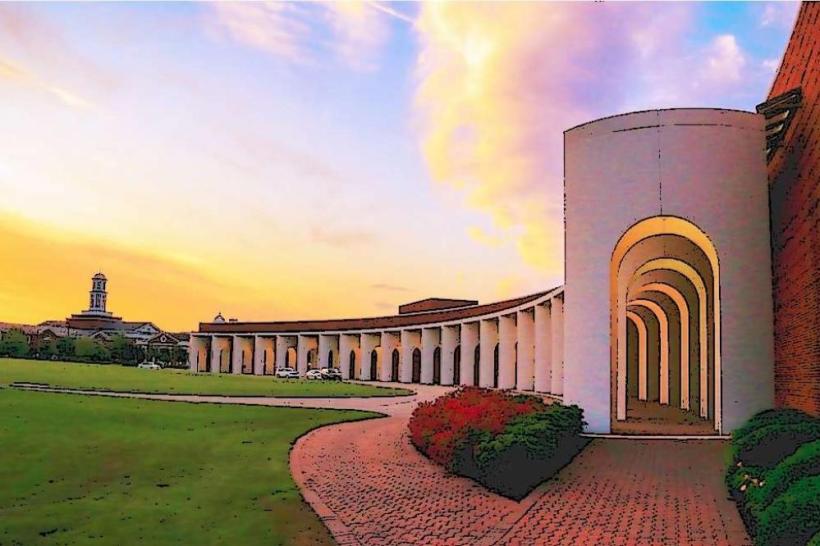Information
Landmark: Lee Hall MansionCity: Newport News
Country: USA Virginia
Continent: North America
Lee Hall Mansion, Newport News, USA Virginia, North America
Lee Hall Mansion is a distinguished historic plantation house situated in Newport News, Virginia, exemplifying Italianate architectural style and offering a vivid portrayal of mid-19th-century Southern life. Constructed between 1851 and 1859 by Richard Decatur Lee, a wealthy Virginia planter, the mansion remains one of the most intact antebellum homes on the Virginia Peninsula, preserving the elegance and social dynamics of the era just before the outbreak of the American Civil War.
Architectural Significance
The mansion is a classic example of Italianate architecture, a style that gained popularity in the United States during the mid-1800s. Key features include its low-pitched roofs, wide eaves with decorative brackets, tall narrow windows, and balanced, symmetrical façade made of brick. The house is elevated on a slight hill, providing panoramic views of the surrounding landscape, which historically included expansive plantation grounds. The spacious interior includes elaborately decorated rooms such as an elegant ladies' parlor, formal dining areas, and family quarters, furnished with period-appropriate antiques and artifacts that immerse visitors in the lifestyle of Virginia’s planter aristocracy.
Historical Context and Civil War Role
Lee Hall Mansion holds profound historical importance due to its strategic role during the Civil War, specifically in the 1862 Peninsula Campaign. The mansion served as the headquarters for Confederate Generals John Bankhead Magruder and Joseph E. Johnston between April and May 1862. From this vantage point, the Confederate leadership planned and coordinated defensive operations to halt the advance of the Union Army under Major General George B. McClellan. The mansion's location along Yorktown Road made it a critical command post and observation point during the early battles of the campaign.
On May 4, 1862, a small skirmish took place on the grounds of the mansion during the Confederate retreat, marking the property as an active military site during a pivotal moment in the war. The estate also includes remnants of Confederate earthworks and a historic Confederate hot-air balloon launch site, evidencing the innovative military tactics employed during the conflict.
Museum and Interpretation
Today, Lee Hall Mansion operates as a museum dedicated to interpreting both the domestic life of Virginia’s planter class and the military history of the Civil War on the Peninsula. The museum features meticulously restored rooms decorated with authentic furnishings, offering visitors an intimate glimpse into 19th-century plantation living. Exhibits include significant artifacts such as a tablecloth from the USS Monitor, highlighting the wider naval and military context of the war.
An important component of the museum experience is the 1862 Peninsula Campaign Gallery, which houses a comprehensive collection of artifacts, maps, and interpretive displays that contextualize the military strategies, battles, and everyday experiences of soldiers and civilians during this critical campaign.
Visitor Experience
Lee Hall Mansion is open to the public from Wednesday through Saturday, with guided tours that provide detailed narratives of both architectural features and historical events. The site offers an educational environment for visitors to understand the complexities of the antebellum South and the profound impact of the Civil War on Virginia’s social and military history.
The mansion’s grounds and nearby historical features allow visitors to explore the broader battlefield landscape and Confederate defenses, further enriching the interpretive experience. Admission is reasonably priced, with discounts available for seniors, children, families, military personnel, and AAA members, making it accessible to a wide audience interested in American history.
In essence, Lee Hall Mansion stands as a remarkable preservation of Virginia’s antebellum heritage and Civil War legacy. Its architectural beauty combined with its critical military history offers a multifaceted experience that connects visitors to the cultural and historical fabric of the 19th-century American South and the enduring stories of conflict, resilience, and daily life during one of the nation’s most turbulent eras.


